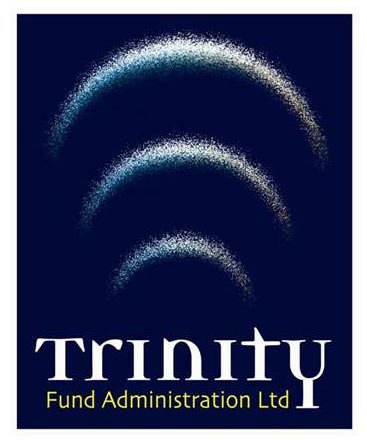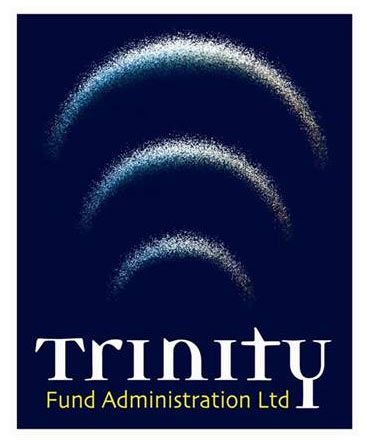Investor Due Diligence in Alternative Investment
Published by Gbaf News
Posted on October 26, 2012
9 min readLast updated: January 22, 2026

Published by Gbaf News
Posted on October 26, 2012
9 min readLast updated: January 22, 2026

In an industry where reputation is one of the most highly valued assets that anyone can possess, due diligence is imperative in the world of alternative investment. A reputation is maintained through track records and achievements, but also, and perhaps more importantly, through the stringent monitoring of those who are associated with said track records and achievements. 
This article expands upon the necessity of investor due diligence which is carried out by investment funds on prospective investors prior to their admittance as shareholders of the fund. As part of anti-money laundering (AML) and counter terrorism financing (CTF) legislation in most jurisdictions, directors of a fund are faced with a regulatory obligation to verify who the investors are, and that they do not pose a threat to the legitimacy of the fund.
The majority of start-up funds use existing contacts to generate seed capital, however even in this case stringent procedures and documentation need to be processed and approved in order to demonstrate that investors have been fully identified. This is a legal requirement in almost every jurisdiction in the world, and there are reforms taking place in order to strengthen these requirements, as part of the current global trend to increase regulation in the financial services industry in an effort to curb money laundering and terrorist financing. A recent global study at the Centre for Governance and Public Policy at Australia’s Griffith University on the ease of opening a shell company without sufficient identity documentation found that there was a high degree of variation among the jurisdictions studied. Some of the results run counter to popular perception as will be discussed further in this article.
Regulatory Considerations
Depending on the jurisdiction in which they are domiciled, investment funds are subject to legislation which aims to detect and prevent terrorist financing and money laundering through the fund. The Financial Action Task Force (FATF) is an inter-governmental policy-making body which sets international standards to combat money laundering and terrorist financing, set up by the G7 countries in 1989 . Many jurisdictions subscribe to these standards when writing their own policies, including Ireland and the Cayman Islands, two key renowned jurisdictions for alternative investment vehicles which form the focus of this article. In the study conducted by the Centre for Governance and Public Policy as aforementioned, Cayman Islands firms were in the group of countries which are the most compliant with international AML standards out of a sample of 182 countries, where no examples of non-compliant firms were found in the Cayman Islands. The study also found that so-called “tax havens” are far more compliant with international AML standards than most rich, developed countries including the United States and the United Kingdom.
Cayman Islands
The following legislation relates to anti-money laundering in the Cayman Islands:
• Proceeds of Crime Law (2008)
• Misuse of Drugs Law (2009 revision)
• Terrorism Law (2009)
• Anti-Corruption Law (2008)
This legislation requires determination that the source and use of the money invested in a fund by an investor is not linked to criminal activity. Such legislation states for example that it is an offence to neglect to report any suspected money laundering activity to the Cayman Islands Monetary Authority (CIMA). It is also illegal to inform a party if they are being investigated for money laundering or that such an investigation has been suggested.
As a result of this legislation, financial services providers located in the Cayman Islands are subject to Money Laundering Regulations (2010 Revision) which specify mandatory anti-money laundering policies, procedures and practices to facilitate adherence to Cayman AML legislation . By abiding by these regulations, companies can ensure that sufficient due diligence is employed to identify customers, and in the case of a fund; the investors and the source of their funds, as well as all counterparties.
Ireland
In Ireland, the relevant AML legislation is the Criminal Justice (Money Laundering and Terrorist Financing) Act, 2010 (“the Act”) which transposes into national law the EU Third Money Laundering Directive (2005/60/EC) and the associated implementing Directive (2006/70/EC), as well as subscribing to FATF recommendations. The Criminal Justice Act, 2010 aimed to facilitate the more effective investigation of white collar crime and to reduce associated delays and amongst the new provisions introduced were measures to protect whistle blowers.
Similar to the Cayman Islands’ regulations on financial services providers, the Irish Act also places obligations on a wide range of “designated persons” including credit and financial institutions, lawyers, accountants, trust and company service providers, and others in relation to money laundering and terrorist financing. The designated bodies covered by the legislation must identify customers, report any suspicious transactions to the Irish Police and Revenue Commissioners (and similar to Cayman legislation, Irish legislation creates an offence of ‘tipping off’ whereby it is an offence to alert a party that they are the subject of a suspicious transaction report), and carry out procedures which provide to the fullest extent possible for the prevention of money laundering and terrorist financing.
Global Shift towards a Risk-Based Approach
In June 2012, an amendment to the Irish Criminal Justice Act, 2010 was proposed which aims to make clearer the policies and procedures which designated persons must use to prevent money laundering, including a greater emphasis on the importance of keeping customer due diligence documentation up to date. Furthermore, the amendment portends that when a designated person carries out a service or transaction with a non EU Member State, it will no longer be sufficient to merely rely on the list of countries currently designated under section 31 of the Act. Instead, the designated person would be required to carry out their own assessment of the risks of money laundering or terrorist financing.
A Fourth EU Money Laundering Directive is also imminent, following an assessment of the Third Directive in early 2012. The Fourth Directive is predicted to incorporate more risk elements which place further emphasis on companies knowing exactly who their customers are, and the nature of their business .
The financial services and investment industry is currently going through a challenging phase in terms of adapting to a myriad of new legislation and subsequent regulation, which impacts on all areas of the industry including investor due diligence. The overall trend is towards lowering risk in the financial system, and in terms of investor due diligence, requirements are increasing and greater time and resources are needed in order to fulfill these stipulations.
Whilst the fund directors remain ultimately responsible for investor due diligence, delegating the task of investor due diligence to an independent service provider such as the fund administrator is a popular and efficient way of carrying out investor due diligence. Using a service provider with stringent AML policies and procedures to carry out due diligence demonstrates legitimacy on behalf of the fund. It is a fundamental way of reducing the risk of the service provider and the directors of the fund from becoming implicated in legal proceedings/regulatory sanctions
or penalties stemming from an investor who has not been subjected to proper due diligence.
Investor identification is carried out by fund administrators, directorship firms, custodians, investment managers, banks and prime brokers. All of these firms aim to protect their clients, as well as themselves from regulatory penalties as well as the resulting reputational damage. It is therefore recommended that all service providers err on the side of caution when establishing investor due diligence policies and procedures.
In order to reduce risk, where a service provider is dealing with various clients who are based in more than one jurisdiction, it is recommended that the most stringent regulations which the service provider comes under be used companywide. For example, although it is usually only an obligation to verify the source of wealth of a Politically Exposed Person (PEP) or Senior Foreign Political Figure, some service providers may suggest identification of the source of wealth for every investor.
The Role of Fund Directors
For a director of a fund, is it extremely important to understand and approve of the due diligence carried out by a third party service provider on behalf of the Fund. Directors remain responsible for the actions of the fund notwithstanding the delegation of certain functions such as investor due diligence, and therefore will need to actively monitor the position, for example, to seek that the third party service provider advises as to any missing AML records for investors within the reports presented at Board Meetings. If there are underlying investors who are investing through an institution and the due diligence on these investors is therefore taken care of by the institution, where the service provider carries out due diligence on the institution only, a director will need to be sure that the service provider takes the necessary measures to ensure that the institution has carried out sufficient due diligence on the underlying investors and that they can access the information when required. It is also important that investor due diligence and on-going monitoring remains a continuous process, including prior to any payment of redemption proceeds, rather than a one-time practice at the time of the investor’s first subscription.
Conclusion
In conclusion, the alternative investment fund industry is undoubtedly going through many changes which bring into focus the existing corporate governance practices of funds. Transparency has been touted endlessly by regulators as the end goal for hedge funds, and it is also important to seek transparency on the investor side too in terms of knowing who your customer is. All investors in a fund should be fully identified, and verification obtained so that they do not pose a risk to the legitimacy of the fund through association with criminal activity. The most effective way to ensure this is to have strict due diligence policies and to make sure that documentation is up to date.
Legislation in various popular investment vehicle jurisdictions is very clear about the AML and CTF requirements for both funds and financial services providers, thus creating a strong framework for carrying out this process. When this is done by an independent third party service provider who can demonstrate that it has robust AML and CTF policies and procedures in place, directors can be satisfied that the fund has far less chance of being compromised by its investors, thereby maintaining a high standard of corporate governance.
Explore more articles in the Investing category











